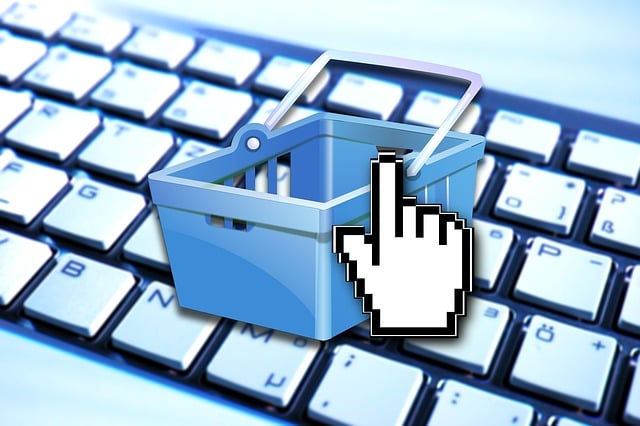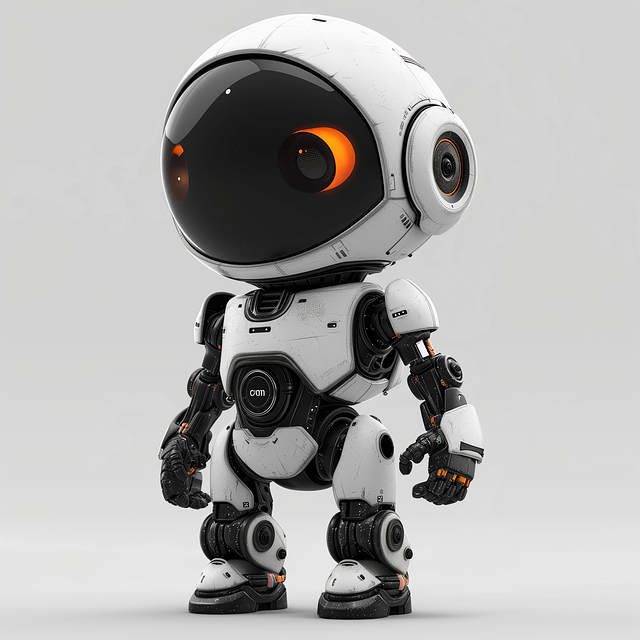Ecommerce automation for marketing campaigns leverages AI tools like chatbots and automated data analysis to streamline tasks, enable strategic planning, and enhance performance through real-time insights. Personalization, based on individual user behaviors, improves customer engagement, while iterative learning from AI agents uncovers consumer preferences for targeted strategies. This revolutionizes campaigns, minimizing human error and providing valuable data for optimization.
In today’s digital era, automation is revolutionizing marketing strategies, particularly in the realm of campaign testing and iteration. This article explores how ecommerce automation for marketing campaigns can significantly enhance efficiency and effectiveness. From unlocking efficient campaign testing through automated processes to tailoring messages with personalized content, these innovations drive better engagement. Through iterative learning, data analysis refines strategies, while streamlining processes speeds up campaign execution. Additionally, minimizing human error in testing boosts overall accuracy, making automation an indispensable tool for successful marketing.
- Ecommerce Automation: Unlocking Efficient Campaign Testing
- Automated Personalization: Tailoring Messages for Better Engagement
- Iterative Learning: Refining Strategies Through Data Analysis
- Streamlining Processes: Speeding Up Campaign Execution
- Enhanced Accuracy: Minimizing Human Error in Testing
Ecommerce Automation: Unlocking Efficient Campaign Testing

In today’s digital era, ecommerce automation for marketing campaigns has become a game-changer. By leveraging AI automation agencies and chatbot technologies, businesses can efficiently test and iterate campaign strategies with remarkable speed and precision. These ai agents streamline various tasks, from customer segmentation to personalized content generation, enabling marketers to focus on strategic decisions rather than tedious execution.
Ecommerce automation facilitates continuous testing by automating data collection and analysis, providing real-time insights into consumer behavior. This allows for swift adjustments and improvements in campaign strategies, ensuring that each iteration builds upon the previous one. With AI agents handling routine tasks, marketing teams can explore innovative ideas and stay ahead of the competition, ultimately enhancing overall campaign performance and customer engagement.
Automated Personalization: Tailoring Messages for Better Engagement

In the realm of ecommerce automation for marketing campaigns, personalized experiences are key to driving engagement and conversions. Automated personalization leverages AI workflows to tailor messages based on individual user behaviors, preferences, and even historical purchases. By analyzing vast amounts of customer data in real-time, these intelligent systems can create highly targeted content, product recommendations, and communication strategies.
For instance, an ai assistant within a marketing automation platform could dynamically adjust email subject lines, body copy, and call-to-actions (CTAs) to resonate with specific segments. This level of customization not only improves click-through rates but also fosters deeper customer connections by demonstrating a genuine understanding of their unique needs and interests. As a result, businesses can enhance the overall ai sales funnel, making each interaction more meaningful and effective.
Iterative Learning: Refining Strategies Through Data Analysis

In the realm of ecommerce automation for marketing campaigns, iterative learning plays a pivotal role in refining strategies based on data analysis. As AI agents and chatbots gain insights from consumer interactions, they can identify patterns, preferences, and trends that were previously invisible to human analysts. This process allows for continuous improvement in campaign targeting, messaging, and overall performance. By learning from each interaction, these automated systems can adapt in real-time, ensuring that marketing efforts remain relevant and effective.
Through advanced analytics, ecommerce automation tools can uncover valuable insights such as optimal customer segmentation, personalized content recommendations, and time-sensitive offers. For instance, a chatbot might learn to tailor responses based on individual shopping histories, enhancing the customer experience and boosting conversion rates. This level of customization and adaptability is revolutionary, transforming static marketing campaigns into dynamic, data-driven strategies that evolve with the needs and behaviors of online shoppers.
Streamlining Processes: Speeding Up Campaign Execution

In the realm of ecommerce, automation for marketing campaigns has become a game-changer. By leveraging tools like AI and sales chatbots, businesses can streamline processes that were once manual and time-consuming. This not only speeds up campaign execution but also ensures consistency and accuracy in every step. For instance, an ai funnel can be designed to nurture leads from the moment they land on a website, delivering personalized content and offers based on their behavior and preferences.
The integration of ecommerce automation allows for dynamic and real-time adjustments to marketing strategies. Sales chatbots, equipped with natural language processing capabilities, can engage with customers, gather feedback, and provide instant support. This level of interaction not only enhances the customer experience but also provides valuable insights that can be used to optimize future campaigns. By automating these tasks, marketers can focus on strategic planning and creative elements, fostering a more efficient and effective campaign testing and iteration process.
Enhanced Accuracy: Minimizing Human Error in Testing

In the realm of ecommerce automation for marketing campaigns, minimizing human error is paramount to ensuring accurate and effective testing. Traditional methods often rely on manual processes, where inconsistencies and subjectivity can creep in, leading to less reliable data and outcomes. However, with the integration of AI workflow and ecommerce AI, automated systems take over these tasks, dramatically enhancing accuracy.
AI sales tools, for instance, can execute tests across multiple variables simultaneously, identifying trends and patterns that would otherwise go unnoticed. By eliminating human interference during testing phases, these advanced technologies guarantee a more objective evaluation of campaign performance. This results in data-driven decisions, enabling businesses to optimize their strategies with greater precision and efficiency.
Automation is revolutionizing marketing campaigns, from efficient testing and personalization to streamlined processes. By leveraging ecommerce automation tools, marketers can unlock new levels of engagement while minimizing human error. Automated personalization ensures tailored messages that resonate with audiences, while iterative learning from data analysis refines strategies over time. This combination significantly enhances campaign performance in today’s digital era. Implement these practices for a robust, dynamic marketing approach centered around ecommerce automation for marketing campaigns.
